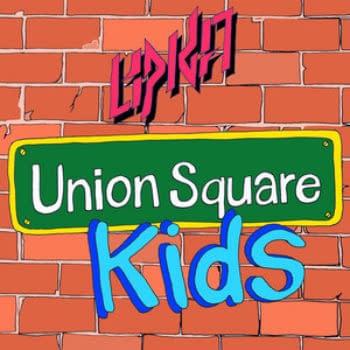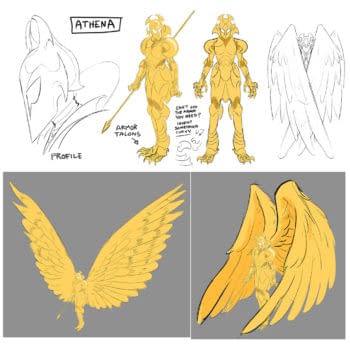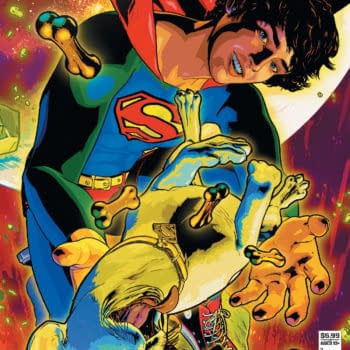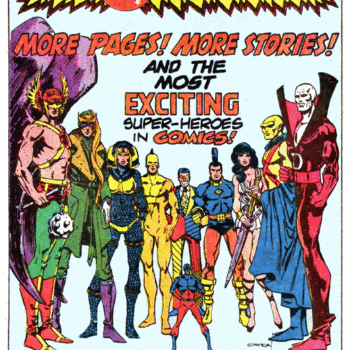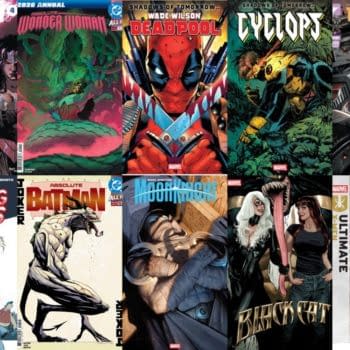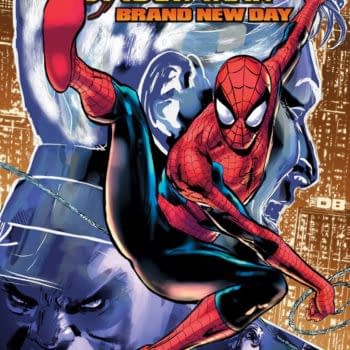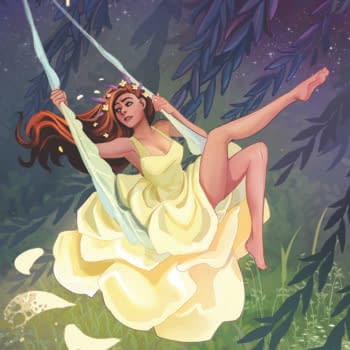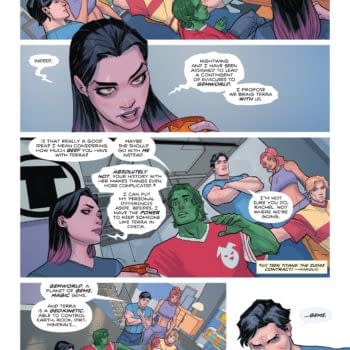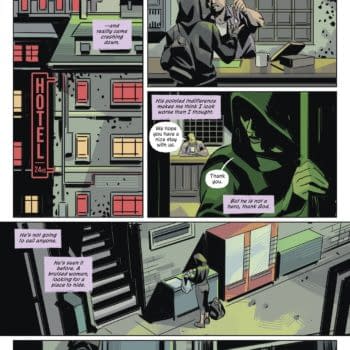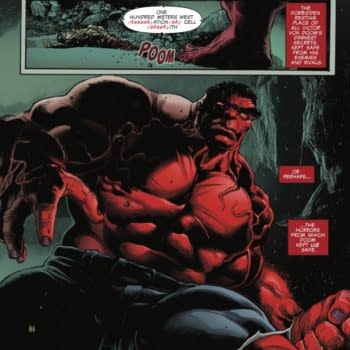Posted in: Comics | Tagged: black panel, comic con, Comics, entertainment, michael davis, michaeldavis, milestone, san diego, sdcc
Behind The Black Panel – Michael Davis, From The Edge
Michael Davis is an artist, writer, mentor, and entertainment executive. He writes,
The Black Panel is a forum made up of major players from the African American media space. The panel is held every year at Comic Con International in San Diego, as well as other venues in the United States and abroad.
These innovators are not invited to sit on the panel to talk about the notable work they have done, but rather to answer questions and give insight to an audience that otherwise would not have access to them.
That's always been the guiding goal of the Black Panel: access.
The panel grew from what were once the Milestone Media panels at comic book conventions. 1992 saw the first Milestone Media panel, and from the start Milestone's panels were anything but what comic book publisher panels were at the time.
Publisher's panels back in the day were all about selling the line. That's still what it is, except now it's a lot more fun.
Now, it's a lot more fun.
Before, publishing companies' only mandate and goal for a panel was a hard sell of the line. That's it. That's all. The panelists were usually editors talking to the crowd while treating them to a slide show. The highlights of the panel were almost always art never seen before a new creative team for a book or the announcement of new series.
Rarely were there questions allowed, and when allowed, they commenced with something as unenthusiastic as "We have a few minutes left, time for one or two questions."
With the notable exception of Bob Wayne on some of DC's panels, most panels were devoid of any humor or interaction with the crowd. The panels were scripted presentations from the publishers to the fans and there was nothing wrong with that.
Milestone changed the game.
I'd like to say we thought well in advance of the impact we would have on comic book panels, but nope. We changed the game because we had to. Our first panel took place months before we had anything on the stands; as a result, we planned to give out posters and ashcans. Neither showed up.
There we were, with only some cheesy looking flyers that someone at DC threw together (the same someone who screwed up the ashcans). Right before the panel started, it was decided we would open up the floor to questions and interact with the crowd as much as we could.
I know, brilliant.
An opening statement and audience Q&A became Milestone's format, and our panels became standing room only events.
When I left Milestone to run Motown Animation & Filmworks, I was asked to sit on a "Blacks in Comics" panel at Comic Con. I'd sat on more than one and attended quite a few, and what better way to introduce the comic book line I was doing at Motown?
After the introduction of the panelists, the panel became what it always became: a bitch fest. The discussion (as always) centered around how Marvel and DC were fucking over Black creators, how the industry were full of racists, how Black artists were paid in watermelon…
You get the drift.
20 or so minutes into this yenta fest, I simply got up and left. I'd had enough, and so it was that the Black Panel was born. The panel's mission statement was and still is my mission statement: "Each one, teach one."
The Black Panel began as a positive comic book forum, but quickly grew into a progressive mass media forum. Film, music, television, mainstream publishing, social media, politics, and any and all things media are covered.
Each year the panel receives invites and forum requests from universities, film festivals, clubs, and organizations from as far away as China and Japan. Comic Con is and has always been home base, and it's that setting, far more than any other, that has contributed to its broad appeal.
There are some that don't understand that greater appeal, and woefully it's these small-minded folk that need to understand what the panel represents more than anyone. I'm always amazed when some moron loses their mind because white people are invited to sit on the panel.
Black culture is American culture with rare exceptions, where Black culture goes, so go YOUR kids. The reach that Black culture has is more often than not dispersed, times originates and sustained by non-Black means; as such, the work being done by a Mike Richardson, Missy Geppi and the many unsung individuals who do so with nary a nod of appreciation for their efforts should be recognized and The Black Panel has no problem doing so.
Period.
For more information please visit theblackpanel.com and check out the alumni list. It will surprise many and perhaps you will be one.
Lastly, Orlando Jones talked about The Black Panel during his last appearance on the Arsenio Hall show. The next day a pretty big agent for a pretty big Black actor emailed me. Turned out that his client was, maybe interested in doing the panel. Attached was a pretty laughable "Rider."
An entertainment Rider, depending on who it's from, can be a list of requests or demands. These were demands. Demands from an actor I've known for years, by the way. Clearly he and his team see the panel as a way to promote whatever project they are hyping.
Nope.
The Black Panel isn't for any superstar to hype his shit; the Black Panel is for the young man or woman, Black, White, or other, who one day will replace that guy and his demand for Cherry Coke served in wine glasses over ice.
Really? Nigga please.
Michael Davis is an artist, writer, mentor, and entertainment executive.
His positions as an entertainment executive include: President & CEO of Motown Animation & Filmworks, President of Animation at Magic Johnson Entertainment, President of Publishing at Blackboard Entertainment, and Vice President, Director Of Talent, and Co-founder of Milestone Media. He's created, written, illustrated, or produced original content for comics, television, radio, publishing, and reading programs as an independent producer. Alumni from his Bad Boy Studio mentor program are some of the most respected talents working in comics, television, and illustration today.
Current projects include graphic novels, The Underground from Dark Horse and Jackie Robinson Day 1, mainstream novels such as Everything You Ever Wanted To Know About Black People But Were Afraid To Ask from Full Court Press, White Winter, Black Night Books 1-4 from Simon & Schuster. The Littlest Bitch from Sellers Publishing (with David Quinn) is in its third printing and currently in development for television.
Michael is also the creator and host of The Black Panel, a powerhouse forum that brings together some of the biggest names in the African American media space.
Among his honors and awards are Mentor Of The Year from Mentor Magazine 1995, The Michael Davis Auditorium named at The Gordon Parks Academy 1996, Renaissance Award from the Arizona Black Film Festival 2006, and The Inkpot Award at Comic Con International 2013.
He fully realizes his bio is now the longest and most corporate of the BC contributors, something his haters will no doubt consider just another way to talk about himself.







